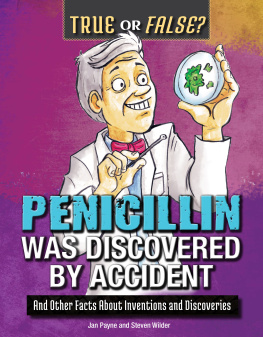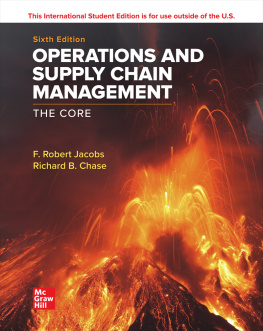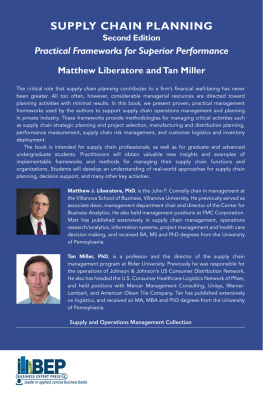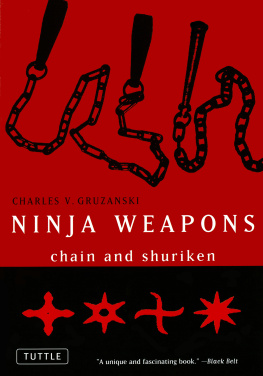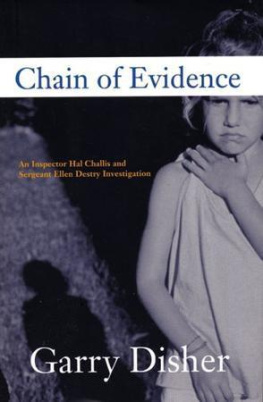THE LIFE
OF
ERNST CHAIN
Penicillin and Beyond
Ronald Clark

Contents
My first thanks are to Lady Chain, who has given me unrestricted access to the extensive correspondence and papers of Sir Ernst. I am grateful to her for reminiscences and for reading the manuscript; and also to her three children for recollections and reminiscences.
Sir Ernsts papers were initially assembled by Lady Chain and then passed to the Contemporary Scientific Archives Centre at Oxford (Honorary Director, Professor Margaret Go wing), where they were catalogued under the supervision of Mrs Jeannine Alton, Deputy Director. A 439-page three-part catalogue of the Chain archive was produced at the Centre, after which the material was lodged at the Contemporary Medical Archives Centre, Wellcome Institute for the History of Medicine, London, under the care of the Centres archivist, Miss Julia Sheppard. I am most grateful to all of those involved. The greater part of Sir Ernsts correspondence quoted here is held by the Medical Archives Centre in London, its details being given in the catalogue produced in Oxford.
I am also grateful to the Medical Research Council for permission to quote from their archives and to their archivist, Miss Mary Nicholas, for her help in handling them.
I wish to thank Lady Florey for her permission to use her husbands archive at The Royal Society, and Mr N. H. Robinson, the Societys Librarian, for his approval of the wording I have used in quoting from the Florey Papers.
I further wish to thank Mr Robinson for help in consulting other papers held in The Royal Societys Library.
I also wish to thank Dr Norman Heatley for permission to quote from his Notes now deposited at the Wellcome Institute for the History of Medicine; and The Weizmann Archives for permission to quote a letter by Dr Chaim Weizmann.
Those who have helped me in other ways, largely by their recollections of Sir Ernst, include: Sir Edward Abraham; Professor Sir Derek Barton; Lord Beloff; Professor Isaac Berenblum; Mr Donald Callow; Ms Nechama Challom, Curator of the Weizmann Archives; Dr J. Edelman; Dr Ruth Eisner-Strahl; Professor R. Falini; Dr Henry Fisher; Sir Ian Fraser; Dr Samuel A. Goldblith; Sir Ronald Halstead; Professor H. Harris; Dr Norman Heatley; Professor Dorothy Hodgkin; Professor Ephraim Katzir; Mr D. Kleeman; the late Mr H. G. L. Lazell; Rudolf Lewy; Dr Keith Mansford; Sir Ashley Miles; Mr Nathan Milstein; Professor Albert Neuberger; Mrs Jean Pingree, Archivist, Imperial College of Science and Technology; Professor S.J. Pirt; Mrs Rinna Samuel, Assistant to the President of the Weizmann Institute of Science; Professor Michael Sela, President of the Weizmann Institute of Science; Lord Sieff of Brimpton; Dr Arnold Spicer, formerly adviser to the Lord Rank Research Centre; Dr Trevor Williams; Lord Wolfson; Mrs Haya Wolovsky, Curator of the Weizmann Institute of Science Archives; and Mr D.J. Wright, Librarian, British Medical Association.
Except where made clear by their context, views expressed in this book are my own and should not be attributed to those who have so generously helped me in my research.
The discovery of penicillin and the exploitation of its therapeutic powers which have saved lives literally by the million during the last four decades, reveals history aping art in its coincidences, its ironies and in the strange interlinking records of those involved. The circumstances of the time have lodged in public memory the names of Alexander Fleming, who reported the existence of penicillin in 1929, and of Howard Florey in whose Oxford laboratory its unique therapeutic powers were discovered a decade later. Ernst Chain, who with Fleming and Florey was awarded a Nobel Prize in 1945 for work on penicillin, has remained the relatively unknown scientist in the enterprise, even though he became a leading figure in the development of antibiotics after the Second World War, the man who created in Rome the first international centre for research into antibiotics and whose work led the way to the creation, in the late 1950s, of the tailormade penicillins which were further to transform medicines fight against bacteria. For the last reason if for no other the life of Ernst Chain would form an intriguing entry in the story of twentieth-century science.
Yet Chain, a temperamental Continental as he half-mockingly described himself, was also to influence -and not in Britain alone - the role which government was to play in medical research, the developing relationship between industry and the universities, and the ethical problems which became more pressing as science gave the medical profession increasing control over life and death. That influence was exercised by a man impatient of bureaucracy, frequently categorical in his views and with a marked inability to mince his words. A tendency to overstatement sometimes led to his proposals being discounted, but his forthright attitude frequently proved effective even though it could make enemies as easily as allies. As a committed Jew he experienced both advantages and the reverse, being supported throughout a long life by the certainties of his faith and by the Jewish communities within whose orbit he moved; but, during the first half of his life, suffering from an undercurrent of anti-Semitic feeling which he believed dogged even his scientific work.
Ernst Boris Chain was born in Berlin on 19 June 1906, of Russian-German parentage. He had an excitable nature of which he later became well aware and this he was not above exploiting to great effect if it would help him in an argument. His father, Michael, the son of a tailor from Mogilev Gubernski, within the Jewish pale of settlement in White Russia, had emigrated to Berlin at the end of the nineteenth century. Here he had taken a degree in chemistry and subsequently, as a chemical engineer, built up the successful Chemische Fabrik Johannisthal in Adlershof, an industrial suburb of Berlin, which produced metal salts such as copper sulphate and nickel sulphate. Thus Ernst, as he later wrote, grew up in an atmosphere of chemical industry and chemical research. His mother, Margarete, a German Jewess, was a close relative of Kurt Eisner, the Social Democratic leader who became Bavarias Prime Minister in November 1918 and was assassinated less than four months later. Eisners contacts with the Chain family are unrecorded but it seems likely that they influenced, if only indirectly, the climate in which the young Chain grew up, a climate which encouraged regrettably leftwing views, as he later described them.
More important than any political influence was the familys commitment to Jewry, a commitment which was ever present and which at times strikingly asserted itself. At the age of sixty-eight Ernst Chain still remembered being visited as a youth in Berlin by his grandfather from Russia. He was a most impressive figure with a large black beard, and [I] was told that he spent every free moment he had in studying Torah and Talmud while my grandmother looked after the more mundane business of daily life, Chain later wrote. I was indoctrinated by both my parents with a maxim that was beyond discussion, that the only worthwhile occupation in life was the pursuit of intellectual activities, and any career which was not a university career was unthinkable.
Little is known about Chains early life in Berlin. His father died in 1919, when Ernst was only thirteen, and despite the apparent success of the fathers chemical works the family found itself reduced to something approaching poverty, a common enough fate in the first hyperinflationary days of the Weimar Republic. Ernsts mother ran the home as a guesthouse and the son grew up accustomed to a fluctuating household served by an overworked mother and her young daughter, Hedwig.



